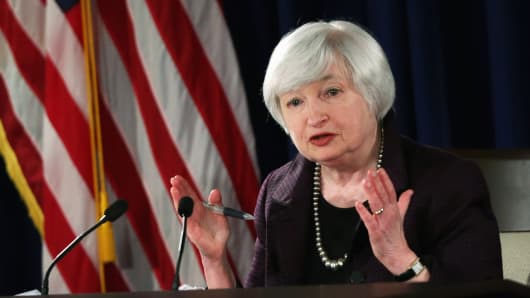The Federal Reserve's commitment to normalization has important implications for investors. It may create a need to adjust strategic allocations to increase the likelihood of meeting long-term investing goals.
Stocks over bonds. Monetary policy normalization is a sign of economic improvement and signals a continuation of the positive economic backdrop that has propelled the market higher in recent years. Long-term stock investors should feel comfortable riding out any equity market dips driven by concerns over Fed policy.
Lighten allocations to fixed income and avoid shortening bond maturities. The Federal Reserve policy de-coupling from other key central banks has created strong demand for high quality U.S. dollar-denominated bonds that out-yield similar quality bonds issued in Europe and Asia.
Read MoreHere's what changed in the Fed statement
This will keep downward pressure on the long end of the U.S. yield curve even as the Fed eventually raises rates at the short end of the curve. Investors who prepare for rising interest rates by shortening maturities may get burned as short-term rates rise and the yield curve flattens.
Manage market volatility risk with option selling rather than bonds. Anxiety over the Federal Reserve's policy course has contributed to an increase in implied volatility, as measured by the CBOE VIX Index, that began in the fourth quarter and has continued into the new year. Higher implied volatility translates into higher option premiums and more premium income for investors using strategies that sell options to manage risk.
Read MoreHere's why the Fed will raise rates in June: Bill Gross
It is rare when market volatility results from things going just as expected. But by sticking with the status quo, that's exactly what the Federal Reserve has accomplished today.
Market jitters about the timing of Fed actions and the follow on effects of global monetary policy desynchronization will likely keep implied volatility elevated going forward.
Commentary by D. David Jilek, chief investment strategist at Gateway Investment Advisers in Cincinnati.


